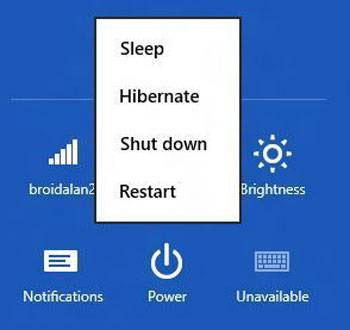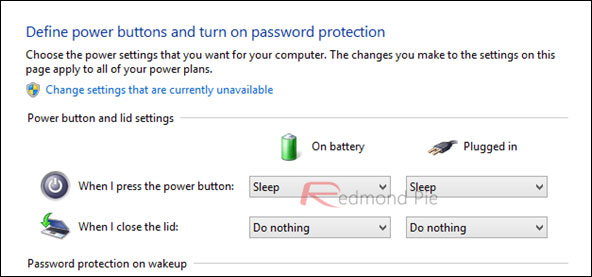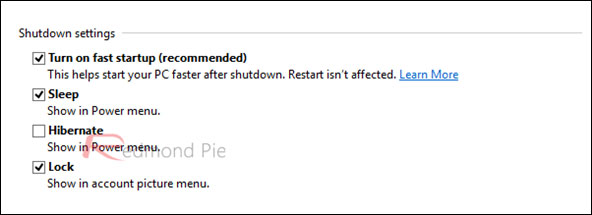Reactivate 'hibernate' - Hibernate on Windows 8.1
Hibernate is a very useful feature in Microsoft Windows operating systems, it first appeared on Win ME and of course also on Win 8 / 8.1 today. However, on Win 8 / 8.1, this feature is turned off by default, we have to do a few fine-tuning steps to re-enable this feature.
What is Hibernate?
This is a feature that helps to shut down the computer completely, just like Shut Down, but it is different in that the entire working data of the machine (stored on RAM) will be hibernated into a memory by the operating system. Buffer from hard drive capacity (or SSD), next time we turn on the device, it will automatically reload 100% of the previous status. This will save quite a bit of time if we are working on a machine (especially a laptop) but need to turn off the computer so that when other users turn on to work, there is no need to reopen those applications and software. .

With Windows ME and XP, the operating system will create a cache equal to the amount of RAM the computer has to make Hibernate memory (eg, 8GB of RAM will take 8GB on the hard drive). This is a waste of resources because everyone knows that many machines have lots of RAM but only use 3-4GB. Up to Windows 7 and more recently Windows 8, Microsoft has overcome Hibernate smarter by only taking the hard drive with the amount of RAM that the computer uses, for example, your computer has 16GB of RAM but only 4-5GB, it only lost it on the hard drive, saving 10GB, when there's more RAM, this capacity is also flexible.
The following trick will help you bring Hibernate back:
Step 1: In the system tray, click on the battery icon, then select More power options from the panel that appears.

- Step 2: In the Power options window, select 'Choose what closing the lid does' or 'Choose what the button power does' is located on the left panel.
- Step 3: In the next window, click on the blue text with the content 'Change settings that are currently unavailable'.

- Step 4: At the bottom of the window, a series of new options will appear. Just tick the box next to "Hibernate" and click Save to save the changes you have made.
